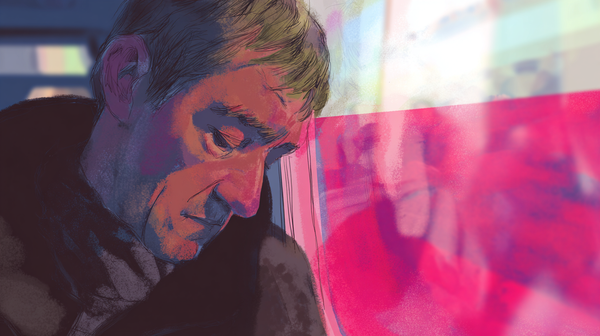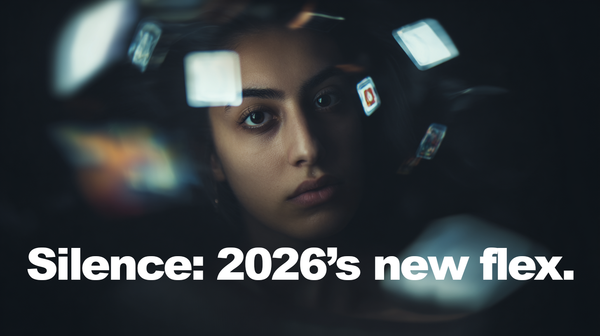When Fear Takes Hold: Why Societies Drift Right, What We're Really Losing, and How Psychology Can Help Us Imagine a Less Angry Future
Marches on the streets. Flags painted on roundabouts. Fear rising online. This article explores why societies turn right in hard times - and how psychology, history, and human connection can help us reimagine a less angry future.
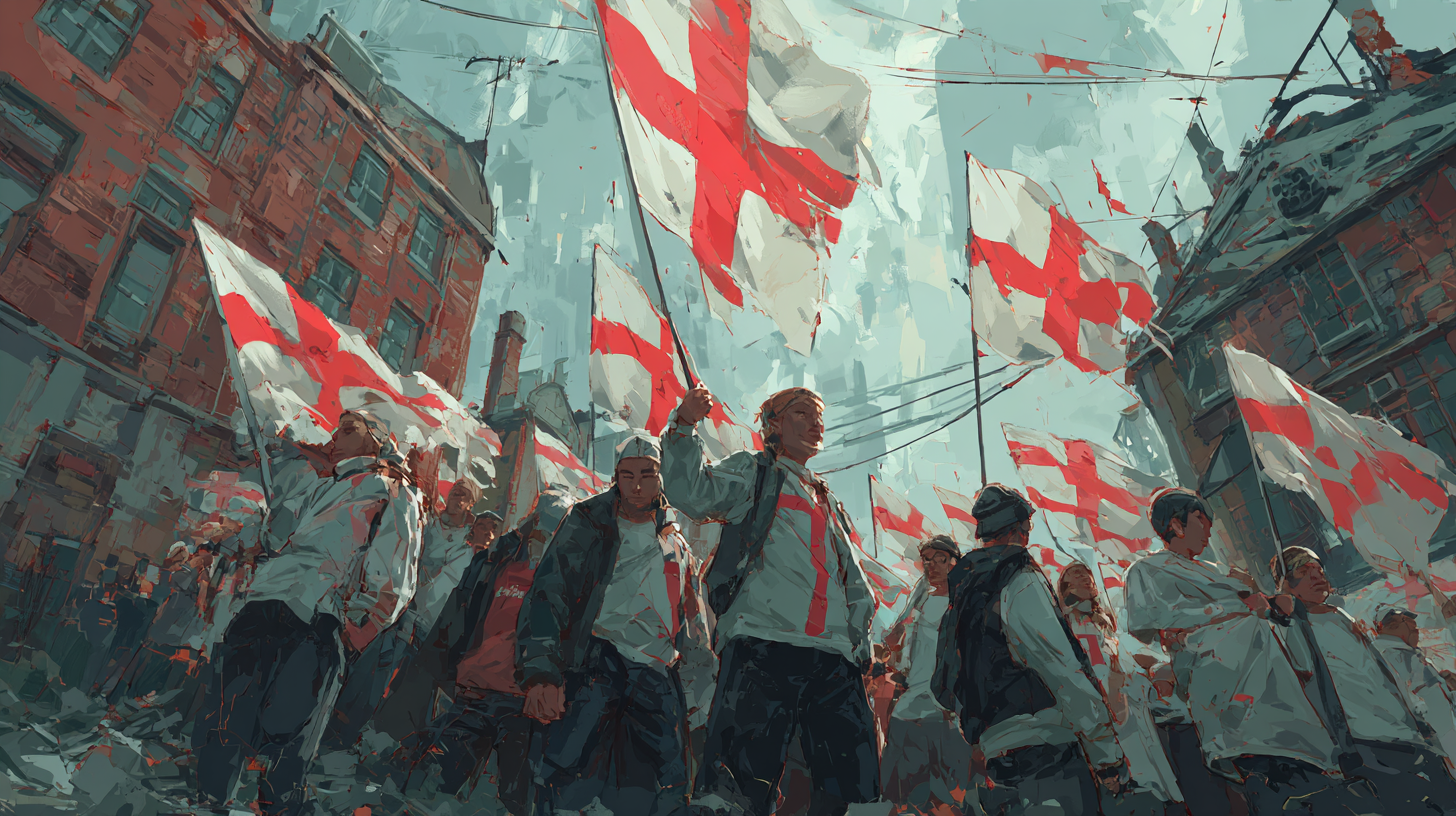
The mood has soured. You can feel it everywhere: in the headlines, in the algorithms, in conversations over kitchen tables. In the UK, "small boats" have become shorthand for national anxiety. In the US, chants about walls still echo through rallies. What binds them is not just politics, but psychology - a collective turn inward, suspicious, defensive, seeking simple answers in a complex world.
And I feel it too. I've watched marches move through our streets, seen hotels attacked, St. George's crosses painted defiantly across roundabouts and street signs. These aren't abstract news stories to me; they're lived realities, happening in places I know, among people I know.
That's why I wanted to write this. Not from the safety of some distanced, armchair observer position, but from within the hum of everyday life. Because the truth is, I see this mood in my friendship group, in the spaces I spend time in, and in the people I care about. And the question gnaws at me: why?
This article is my attempt to make sense of now. Not to judge, but to understand. To hold up psychology and history as mirrors to our moment, to ask what forces - emotional, economic, technological - have brought us here. And to wonder aloud: is there anything that can be done to soften this anger, to shift the rhythm, to imagine a less fearful future?
Why Societies Turn Right in Times of Crisis: Lessons from History's Repeating Patterns
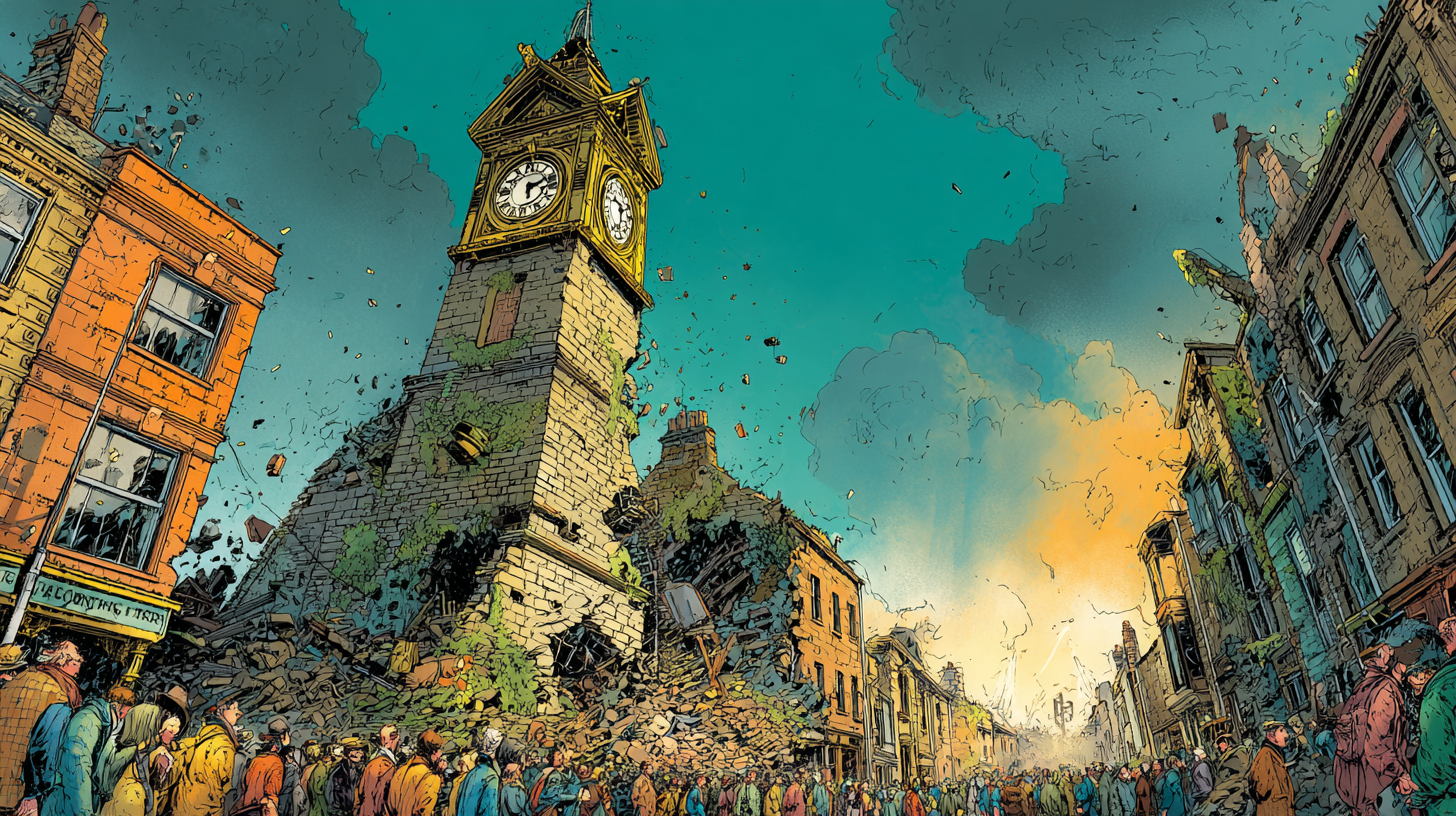
History has a rhythm. It doesn't march forward neatly; it circles back, repeating refrains we'd rather forget. Times of crisis don't just test economies or institutions - they press down on the collective psyche. Fear thickens in the air, trust thins out, and suddenly hard edges feel safer than soft ones.
We've been here before. After financial crashes, far-right parties consistently surge. The data is striking: across 20 democracies, spanning 140 years, extremist vote shares jump by nearly a third in the aftermath of financial crises. Insecurity makes simple stories seductive. Blame becomes a balm.
The 1930s remain the most chilling example. A broken economy, humiliation after war, communities gripped by loss. Into that vacuum poured radio - a new medium, intimate and unrelenting. In German regions where the signal was stronger, support for the Nazi Party was measurably higher. And it didn't stop at the ballot box: those same areas later showed more anti-Semitic violence. Fear found a frequency, and hatred found an amplifier.
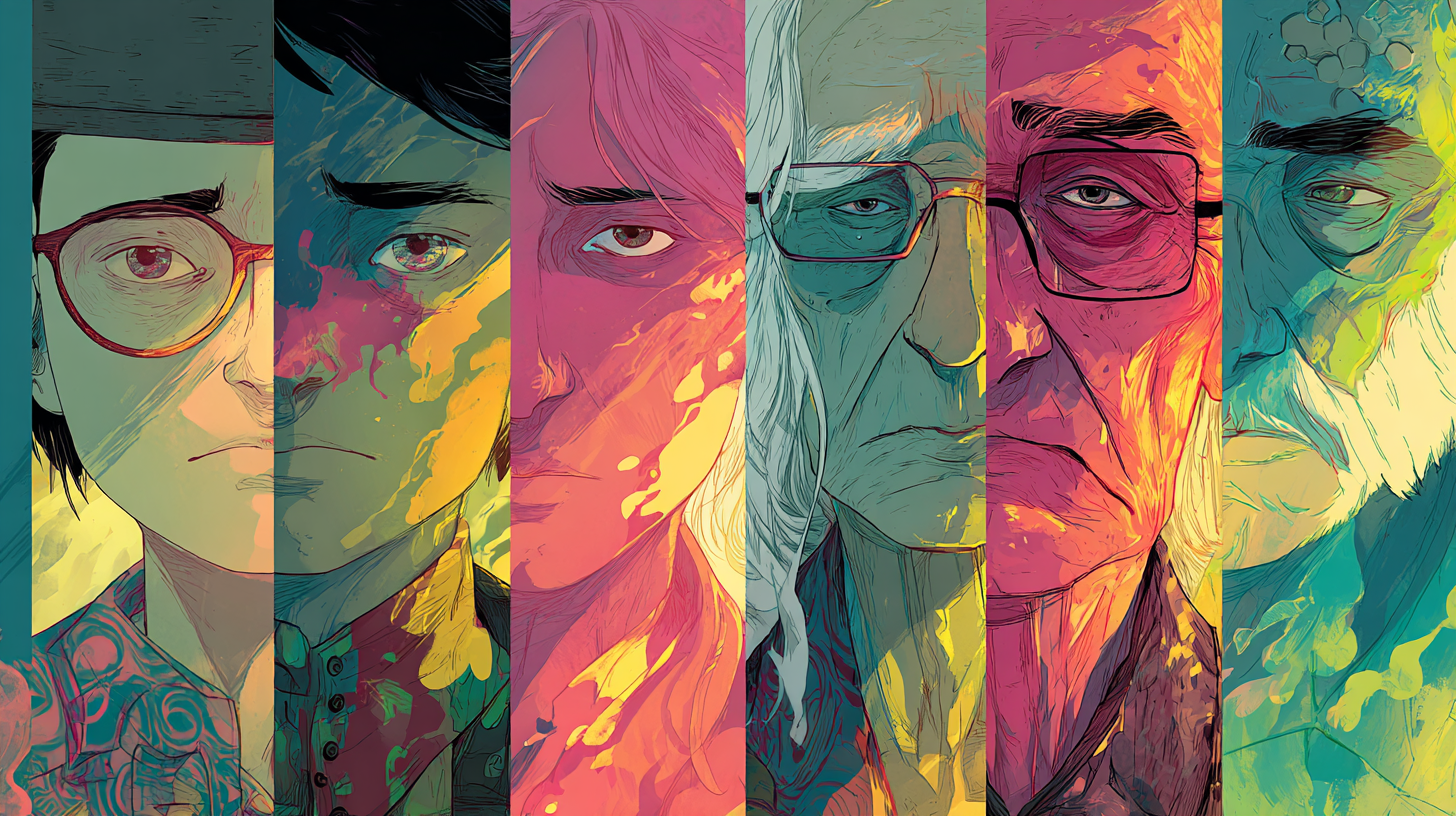
The cycle doesn't only belong to history books. In the 1970s and '80s, oil shocks and inflation sent societies searching for security. "Law and order" politics spearheaded by Reagan and Thatcher rose not just because crime increased, but because uncertainty did. By the 1990s, cable news had turned this mood into a 24-hour spectacle, narrating fear until it felt ambient.
And then came 2008. Another collapse, another wave of insecurity. This time, the political center cracked wide open. Across Europe and the US, mainstream parties shrank, polarization widened, and the ground was laid for today's familiar refrain: migrants as threat, elites as corrupt, nostalgia as salvation.
So when I see anger on the streets now - the marches, the flags, the sense that something essential is under siege - I remind myself: this is not happening in a vacuum. It is part of a rhythm. A cycle where instability breeds fear, and fear makes the politics of exclusion feel like safety. History tells us this. Psychology explains why it works.
How Economic Insecurity Fuels Political Extremism and Scapegoating
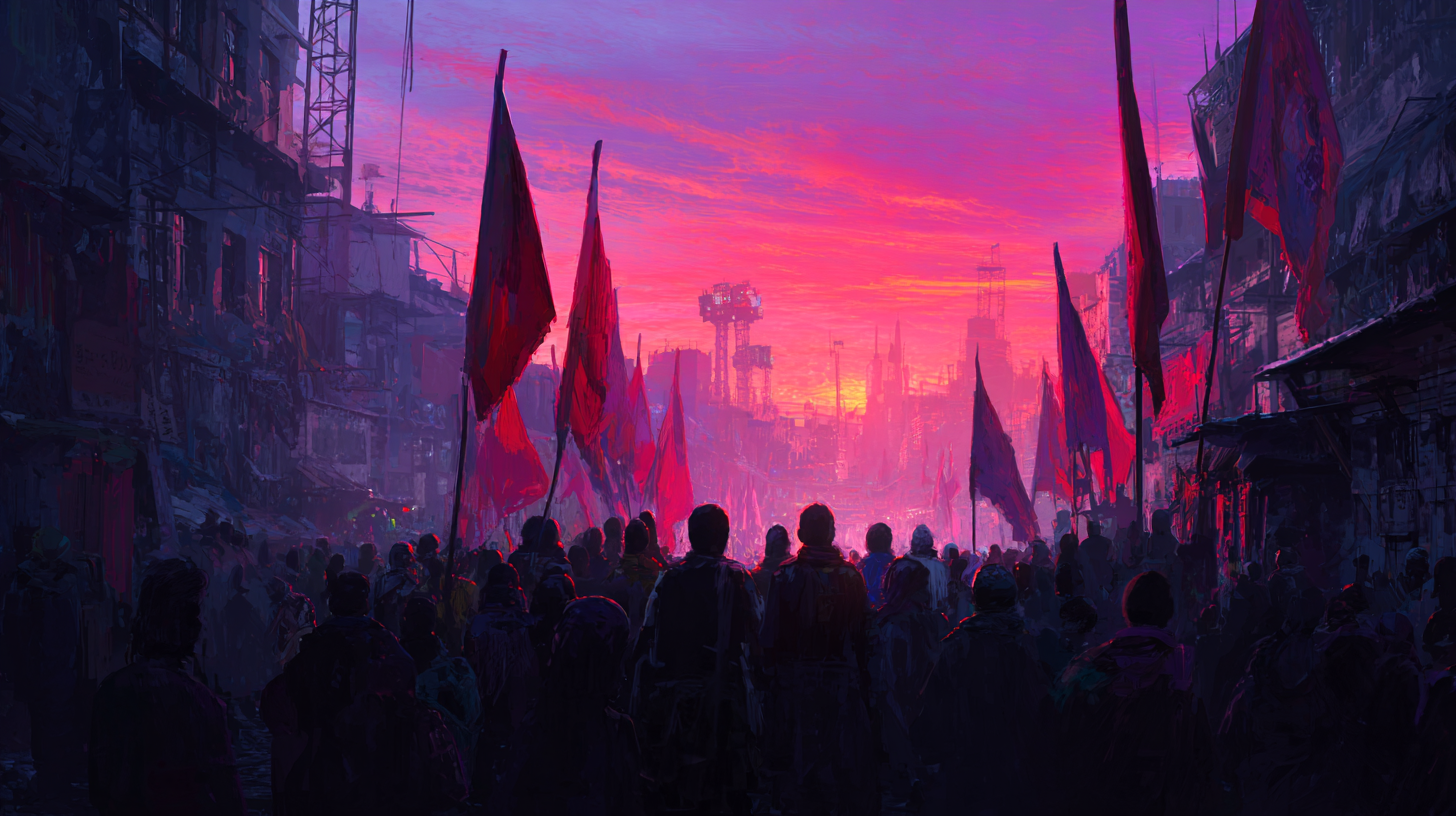
It's easy to frame today's anger as cultural - flags, borders, identity. But underneath those symbols sits something more concrete: money, jobs, survival. Economics doesn't explain everything, but it explains more than we like to admit.
When people lose work, when wages stagnate, when bills outpace earnings, fear stops being abstract. It sits in the chest. And fear, when left untended, looks for someone to blame.
The numbers back this up. In the United States, the so-called "China shock" - the wave of factory closures and job losses triggered by rising imports - reshaped the political map. Communities most exposed didn't just grow poorer; they grew more polarized, with voters drifting toward harder, more extreme options.
In the UK, the story rhymes. Areas hit hardest by deindustrialization, austerity, and trade disruption were also the ones where UKIP flourished and the Leave vote surged. These weren't just "cultural" anxieties; they were material wounds. Towns stripped of industries, young people leaving for cities, services hollowed out. When the system feels rigged, messages promising control - "take back control" - resonate.
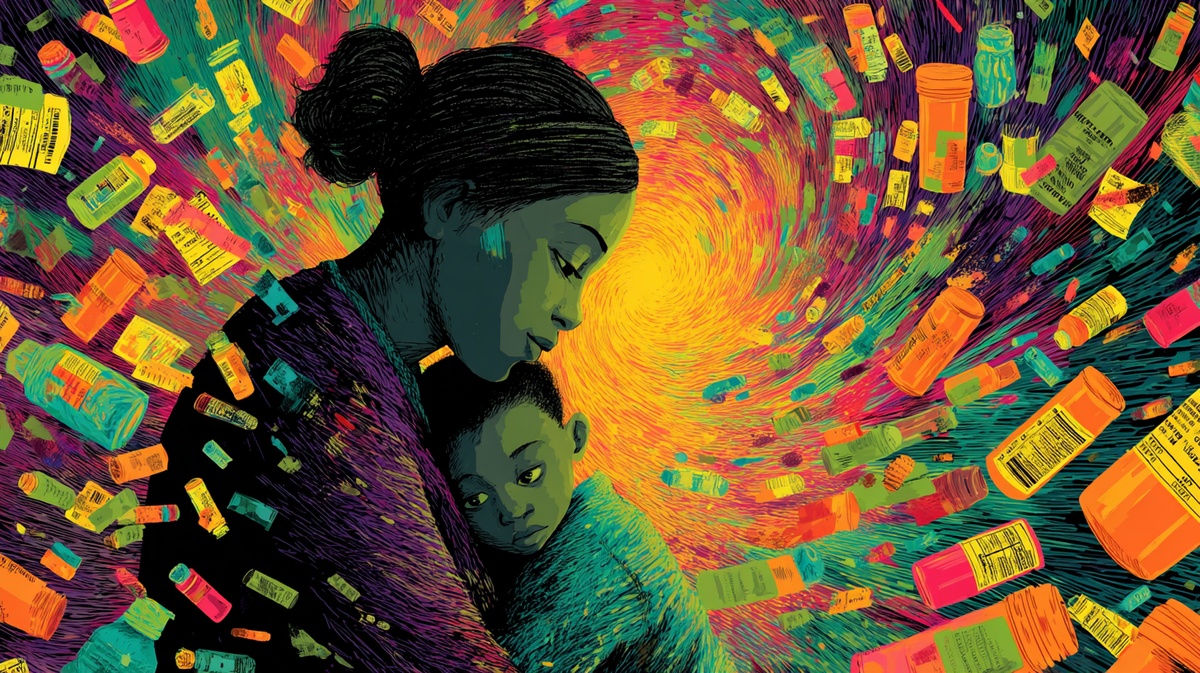
Psychology helps us see why. Economic shocks don't just thin bank accounts; they thin patience, trust, and tolerance. They activate scarcity mindsets - the sense that what little remains must be protected. Under pressure, identities harden, belonging becomes conditional, and scapegoats multiply.
I see it in my own circles. Friends who once spoke about opportunity now speak about competition. People who once shrugged at immigration now mutter about "pressure on services." These aren't abstract ideological shifts; they are the emotional fingerprints of economic fragility.
Which is why the anger of this moment can't be explained away as "irrational." It is rational, if painful, to want stability. The danger is that instead of aiming at the system that produced the insecurity, the blame gets redirected downward - toward migrants, toward the poorest, toward the neighbour who looks different. And history shows where that road can lead.
Cultural Identity, Moral Values, and the Psychology Behind Populist Anger
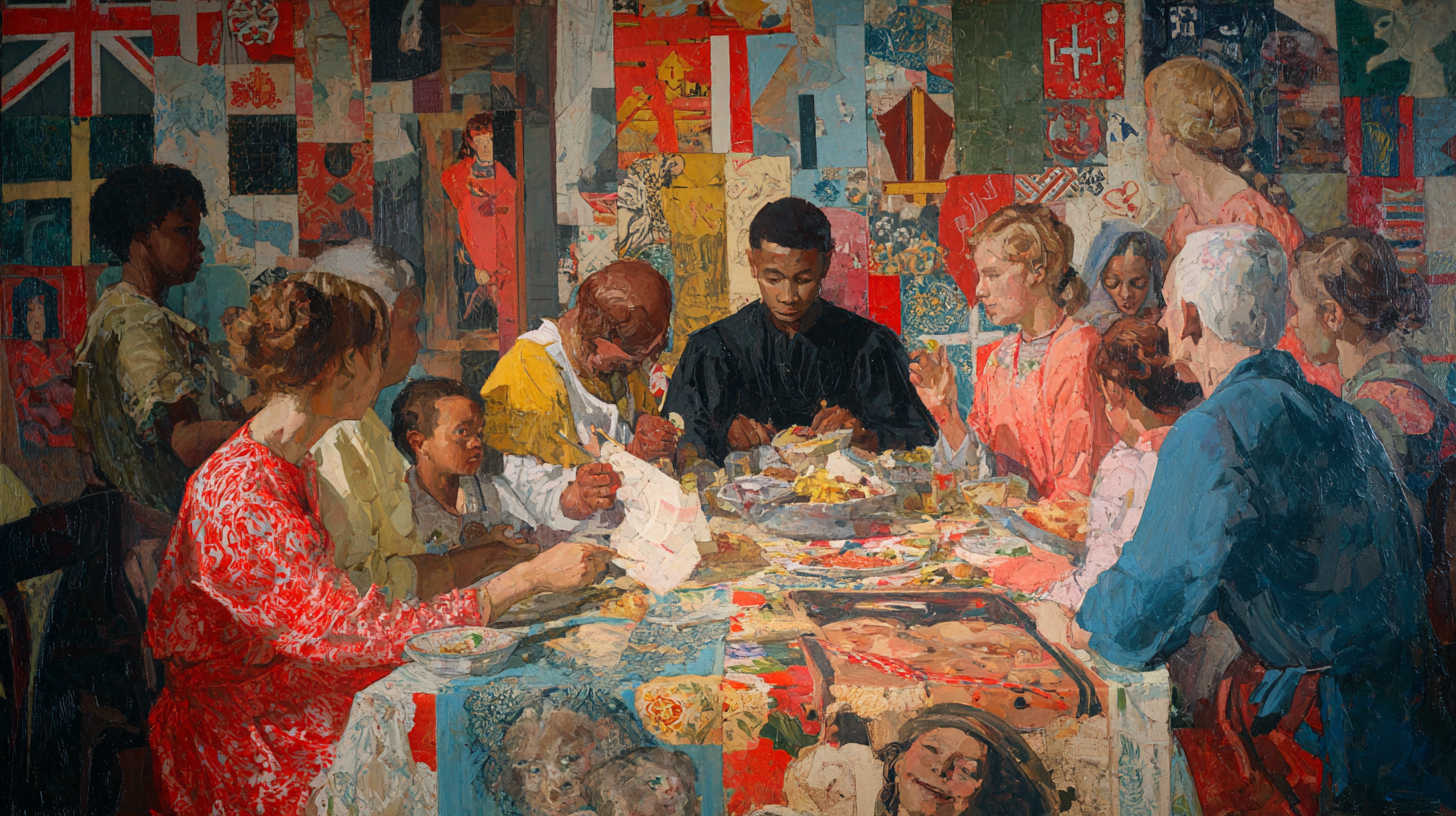
Economics explains a lot, but not everything. If it were just about lost jobs or shrinking paychecks, anger might look more like class solidarity. Instead, we see it wrapped in flags, sung in chants, painted across roundabouts. Something deeper than economics is being defended: identity.
Political scientists Ronald Inglehart and Pippa Norris call it cultural backlash. Over the past half-century, many societies have undergone what they describe as a "silent revolution": a long shift toward liberal, cosmopolitan values - more emphasis on diversity, gender equality, sexual freedom, environmentalism. But every revolution leaves behind those who never signed up for it.
For some, the pace of change has felt less like progress and more like dislocation. The authority of tradition questioned, hierarchies unsettled, familiar cultural markers fading. When that happens, the psychology of belonging kicks in: the more fragile one's sense of place, the sharper the need to draw boundaries between "us" and "them."
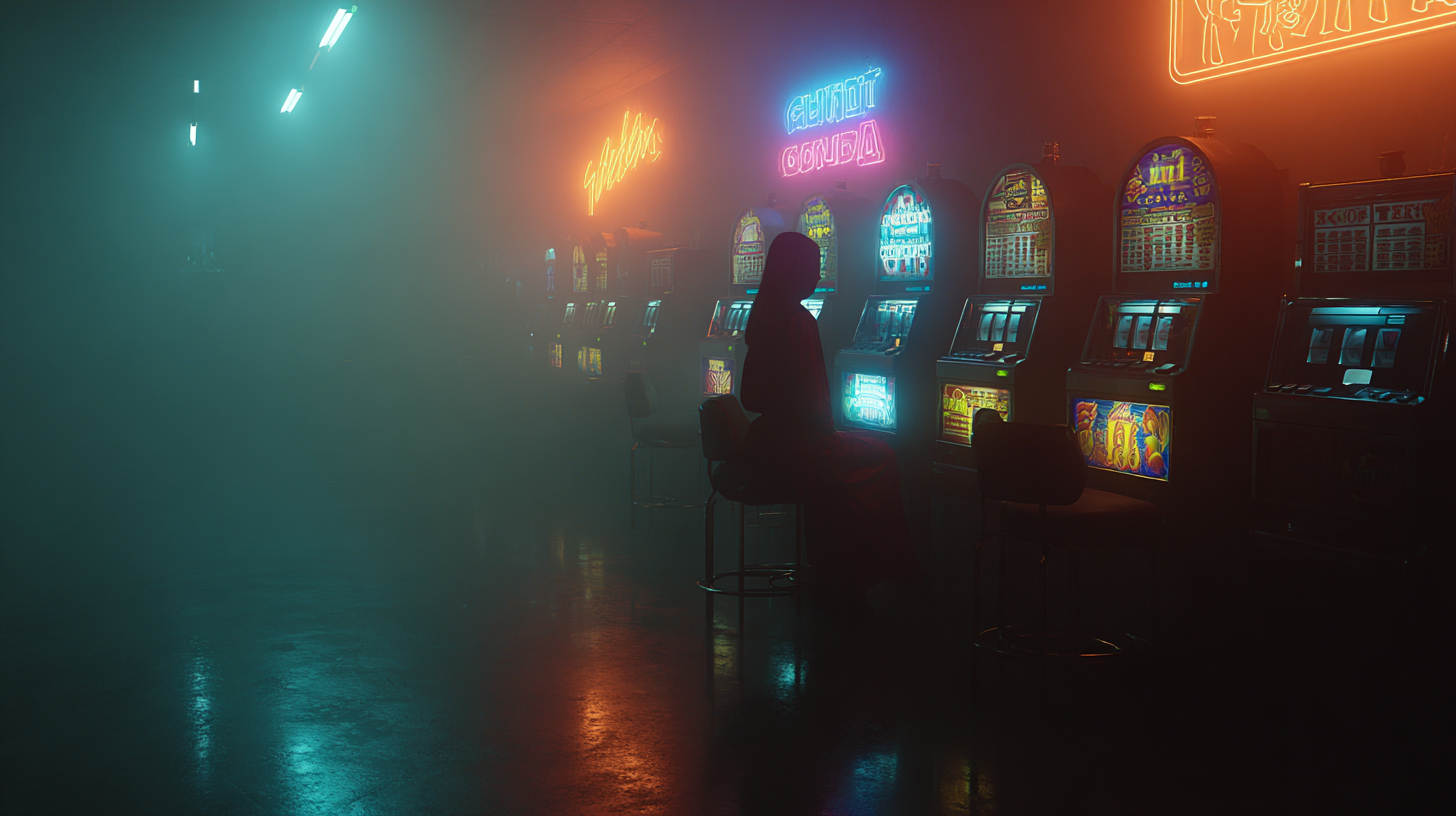
This isn't about caricaturing voters as ignorant or bigoted. It's about understanding different moral foundations. Research shows that while some people place highest value on care and fairness, others lean more heavily on loyalty, authority, and purity. When rapid social change challenges those values - blurring gender roles, unsettling national narratives, increasing visible diversity - it can feel like moral decline, even existential threat.
That's why populist slogans so often reach backward: "take back control," "make America great again." Nostalgia offers psychological shelter. It restores a sense of order, purity, loyalty - the values most threatened by change.
And this is where psychology and politics meet in the street. Austerity might set the stage, but it's the sense of cultural loss that writes the script. Anger becomes less about wages and more about symbols. Less about policy and more about who belongs.
I feel this most in the moments when friends who once argued about jobs now argue about flags. When people who never mentioned immigration suddenly talk about "our culture" being under siege. What's really being defended is not just material security, but a way of life people feel is slipping away.
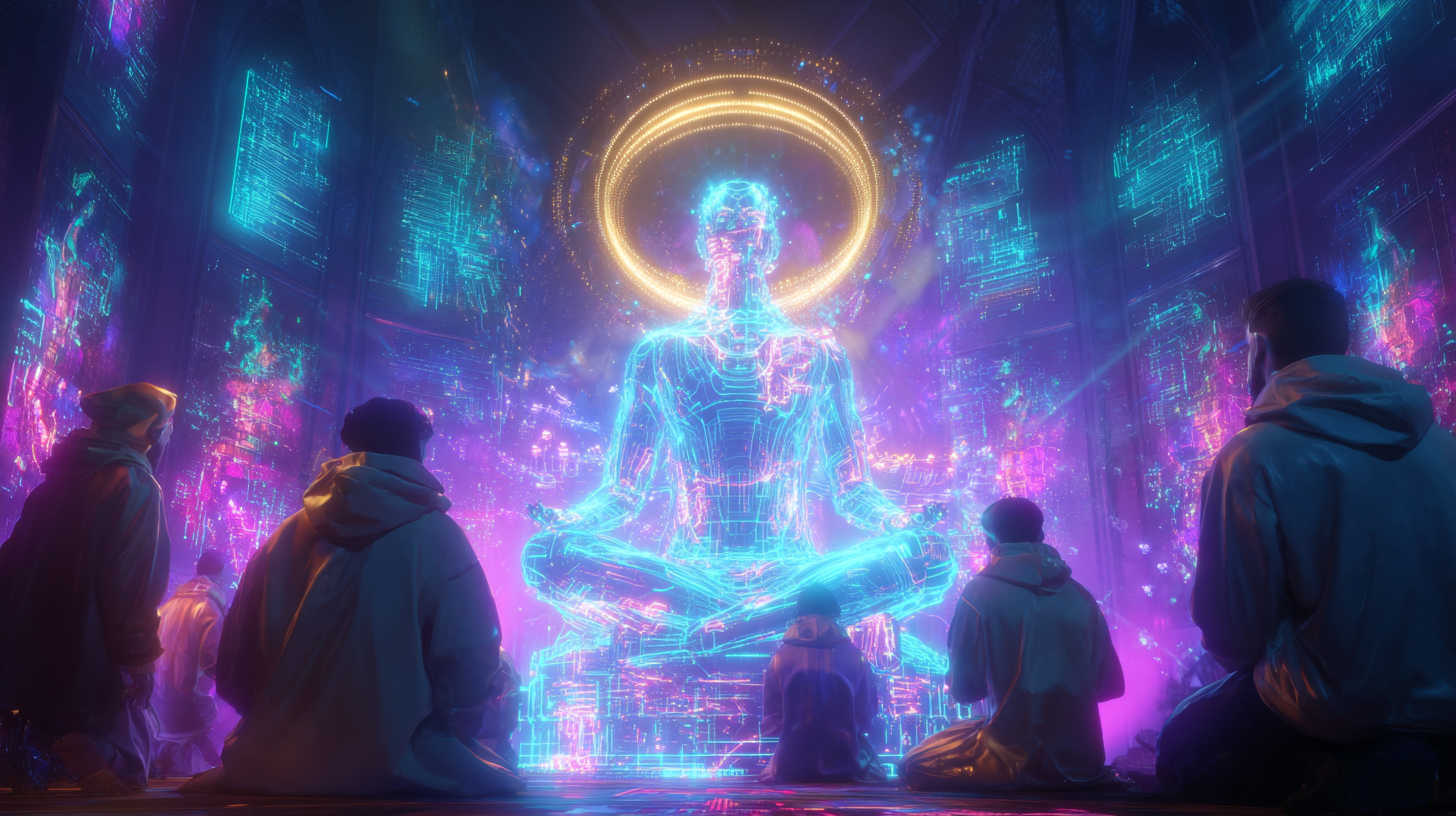
But here's where I struggle: what exactly is being lost? Is it Sunday afternoons in streets and pubs where everyone spoke the same language? Streets where every shop felt familiar? Communities where we felt known by others? A certainty about the order of things - who works where, who belongs where, what the future looks like?
And is it really gone, or does it just feel like it? The research tells us that societies are, in many ways, more tolerant, safer, and more open than before. Yet the perception of decline is powerful enough to shape politics. Which makes me wonder: perhaps what's slipping away isn't a set of practices or traditions, but a sense of stability itself - the feeling that the world will remain recognisable tomorrow.
How Media and Algorithms Amplify Fear and Push Societies to the Right
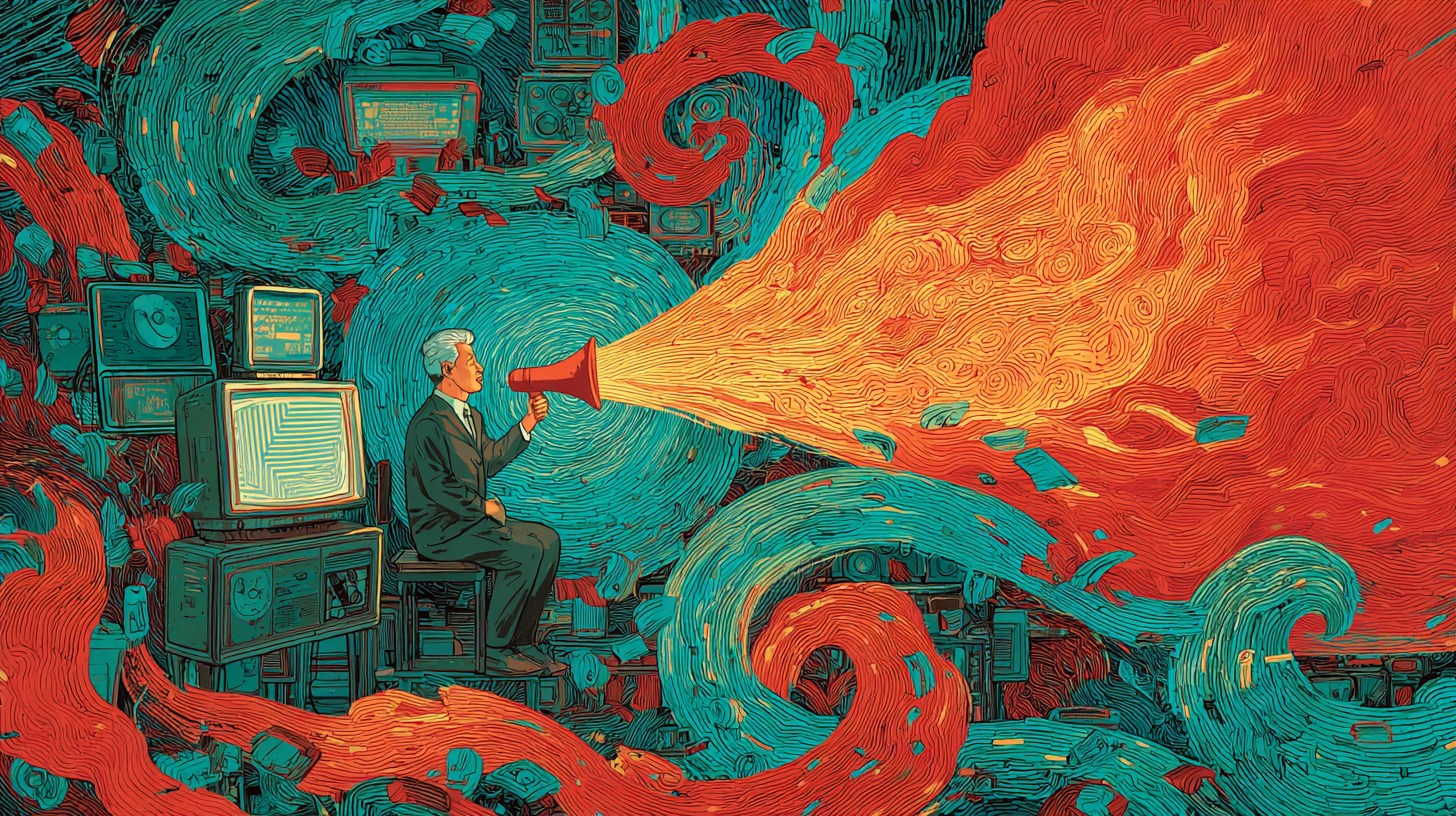
Fear doesn't spread in a vacuum. It needs a carrier. And each era of political instability has found its amplifier.
In the 1930s, it was radio. A new medium, intimate and immediate, capable of reaching into kitchens and bedrooms. In Germany, regions with stronger radio signals didn't just listen differently - they voted differently. Support for the Nazi Party was measurably higher, and anti-Semitic acts more common. Technology didn't create the fear, but it tuned it to a frequency that was impossible to ignore.
By the late 20th century, the amplifier was cable news. Twenty-four-hour channels turned politics into a constant feed, with fear and outrage as reliable ratings drivers. Studies in the US show that the arrival of Fox News in a local market nudged Republican vote share up by 0.4 to 0.7 percentage points - small numbers that, in close elections, matter enormously. Even something as simple as where the channel appeared on a TV guide made a difference. The medium reshaped not just what people heard, but what they thought was normal.
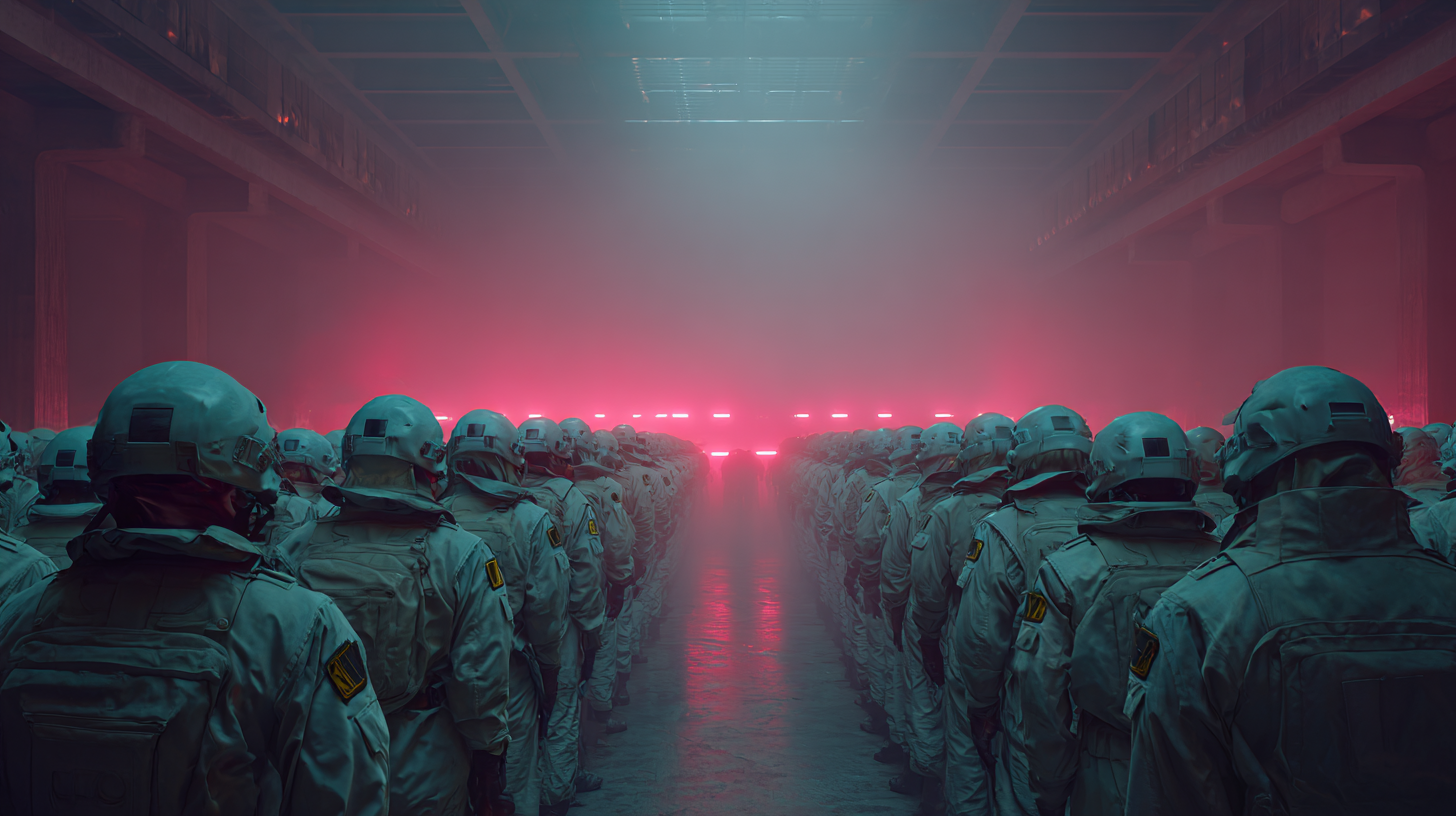
And now, we live inside the third amplifier: social media. Unlike radio or cable, platforms aren't just broadcasters; they're engineers of attention. Algorithms privilege what sparks emotion. False stories travel faster and deeper than true ones, especially when they provoke fear, anger, or disgust. YouTube, WhatsApp, Twitter, Facebook - all have been implicated in pushing extremist content further, faster. Some studies find that algorithms funnel users toward more radical material; others suggest the real engine is us, humans sharing what outrages us most. Either way, the outcome is the same: anger amplified.
What makes this moment different from earlier cycles is the intimacy of the feed. Radio was one-to-many. Cable news was many-to-many. But platforms are me-to-me: tailored outrage, tuned precisely to my fears, my identity, my sense of loss. The flags on the roundabouts, the marches on the streets - they don't just happen. They are seeded, spread, and strengthened by technologies that profit from keeping fear loud and ever-present.
The medium doesn't invent the anger. But it multiplies it - until it feels like the only story in town.
Fear, Identity, and the Need for Certainty: Understanding the Psychology of Polarization
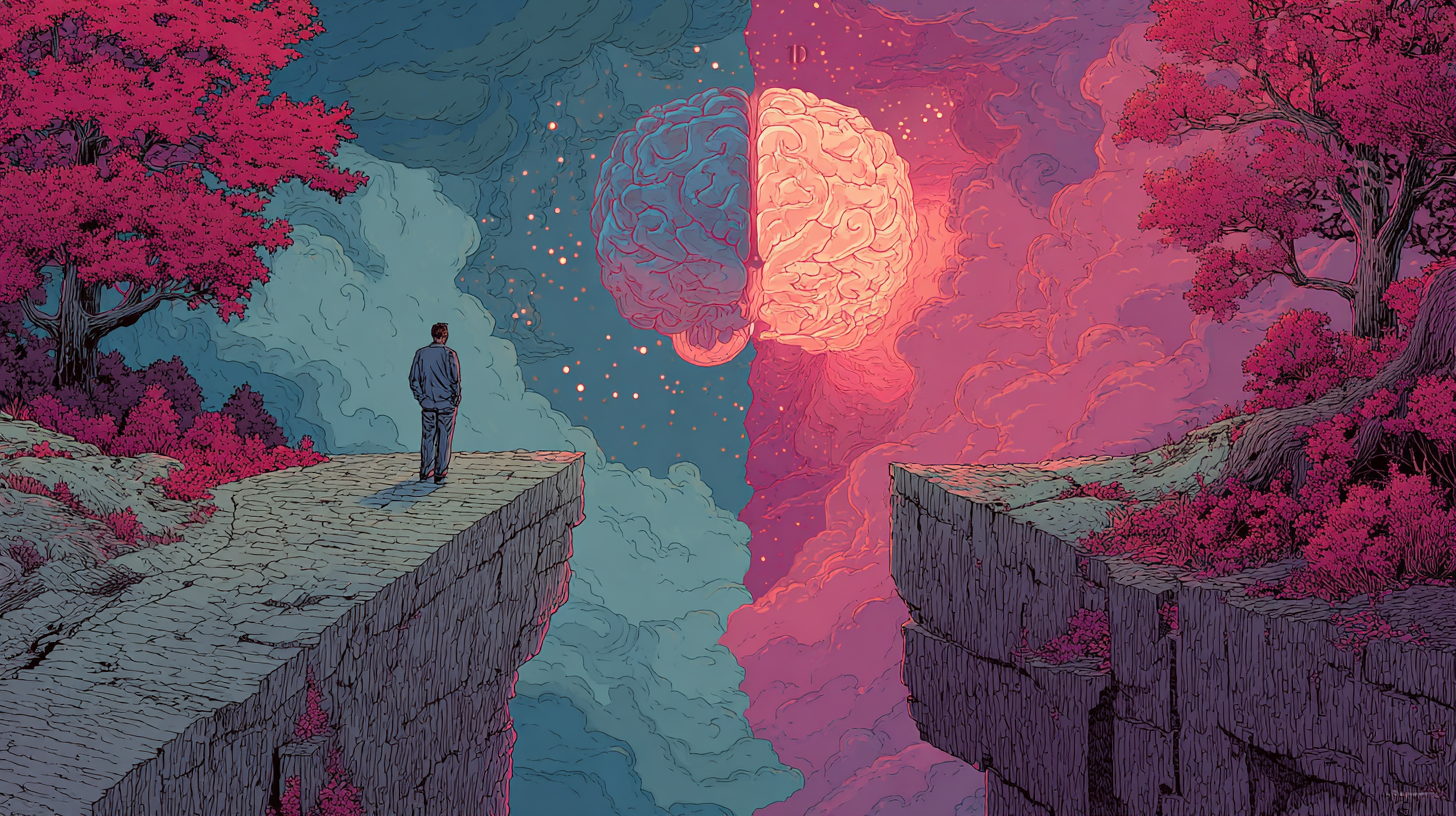
If history gives us the rhythm, and economics and technology set the stage, psychology explains why the same tune keeps finding an audience. It tells us what happens inside the mind when the ground beneath feels unsteady.
At its core, politics is not just about policies; it is about managing fear. When the future feels uncertain, the psyche seeks clarity. Ambiguity feels unbearable. Under stress, we crave sharper categories: right and wrong, friend and enemy, us and them. Psychologists call this the need for cognitive closure - the desire for certainty, even if it comes at the cost of complexity.
Threat amplifies this need. Economic shocks trigger scarcity thinking: if there isn't enough to go around, I must protect what's mine. Identity anxieties add another layer: if my group's status is slipping, I double down on loyalty and belonging. Social identity theory tells us that when self-esteem is tied to group membership, any perceived loss by the group feels like a personal wound.
That's why populist narratives resonate so powerfully. "They are taking your jobs." "They are changing your culture." It's not just rhetoric - it's a direct hit to the brain's threat circuits. Fear sharpens. Anger mobilises. Belonging becomes conditional: who is "in" must be defended; who is "out" must be excluded.

Moral psychology deepens the picture. Research shows that conservatives tend to weigh values like loyalty, authority, and purity more heavily than liberals, who lean toward fairness and care. When change is rapid - new norms, new neighbours, new symbols - it can feel less like progress and more like desecration. The rhetoric of purity, of order, of restoration, hits like a reassurance.
And yet, what strikes me is how much of this is about perception as much as reality. The data tells us that societies are, in many ways, safer, more tolerant, and more prosperous than in previous generations. But psychology reminds us: what matters politically is not what is, but what people feel. And when enough people feel unsafe, uncertain, or unseen, anger follows - and the far right knows how to translate that anger into power.
The Attention Economy and the Collapse of Shared Reality in Today's Political Landscape
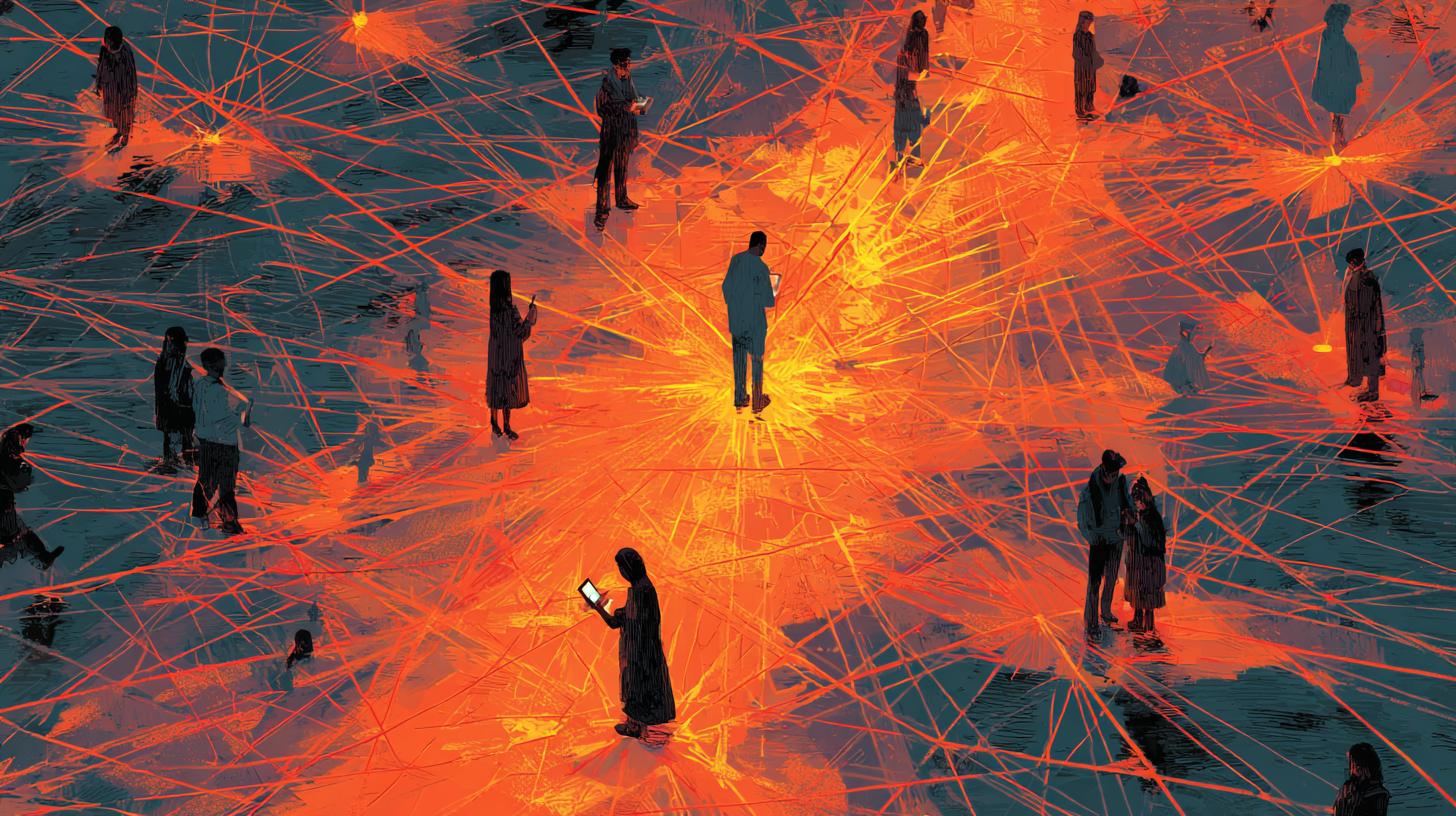
The rhythm is old. Economic crises, cultural backlash, fear of loss - we've seen them before. But this cycle feels heavier, louder, harder to escape. Why? Because three things are different.
First, the attention economy. Outrage isn't just an accident of politics; it's a business model. Social media platforms are built to reward engagement, and nothing engages like fear and anger. Falsehoods spread faster than truths, especially when they provoke disgust or outrage. The result is a public sphere tilted toward the most extreme emotions, amplified endlessly.
Second, the intimacy of targeting. Radio broadcasted to millions. Cable news spoke to households. But social platforms whisper directly to the individual. Each feed is tailored - anger curated to fit your identity, your fears, your worldview. Closed networks like WhatsApp make these messages harder to trace, harder to counter, and more powerful within tight communities.

Third, the collapse of shared authority. Once, people argued about the same set of facts, however imperfectly. Now, media ecosystems are so fragmented that entire communities live inside parallel realities. The very idea of "truth" becomes negotiable. Trust in institutions - government, press, even science - has frayed. Without a common anchor, competing identities and narratives drift further apart, harder to reconcile.
That's why this moment feels more total. We're not just debating policy; we're living inside engineered atmospheres of suspicion. It's not just that people are angry - it's that anger has been given a megaphone, a feedback loop, and a profit incentive.
And it's why the marches, the flags, the graffiti don't just feel like local outbursts. They feel omnipresent. The amplifier has changed. The psychology has not.
Breaking the Cycle: What Psychology Teaches Us About Healing Division and Reducing Fear
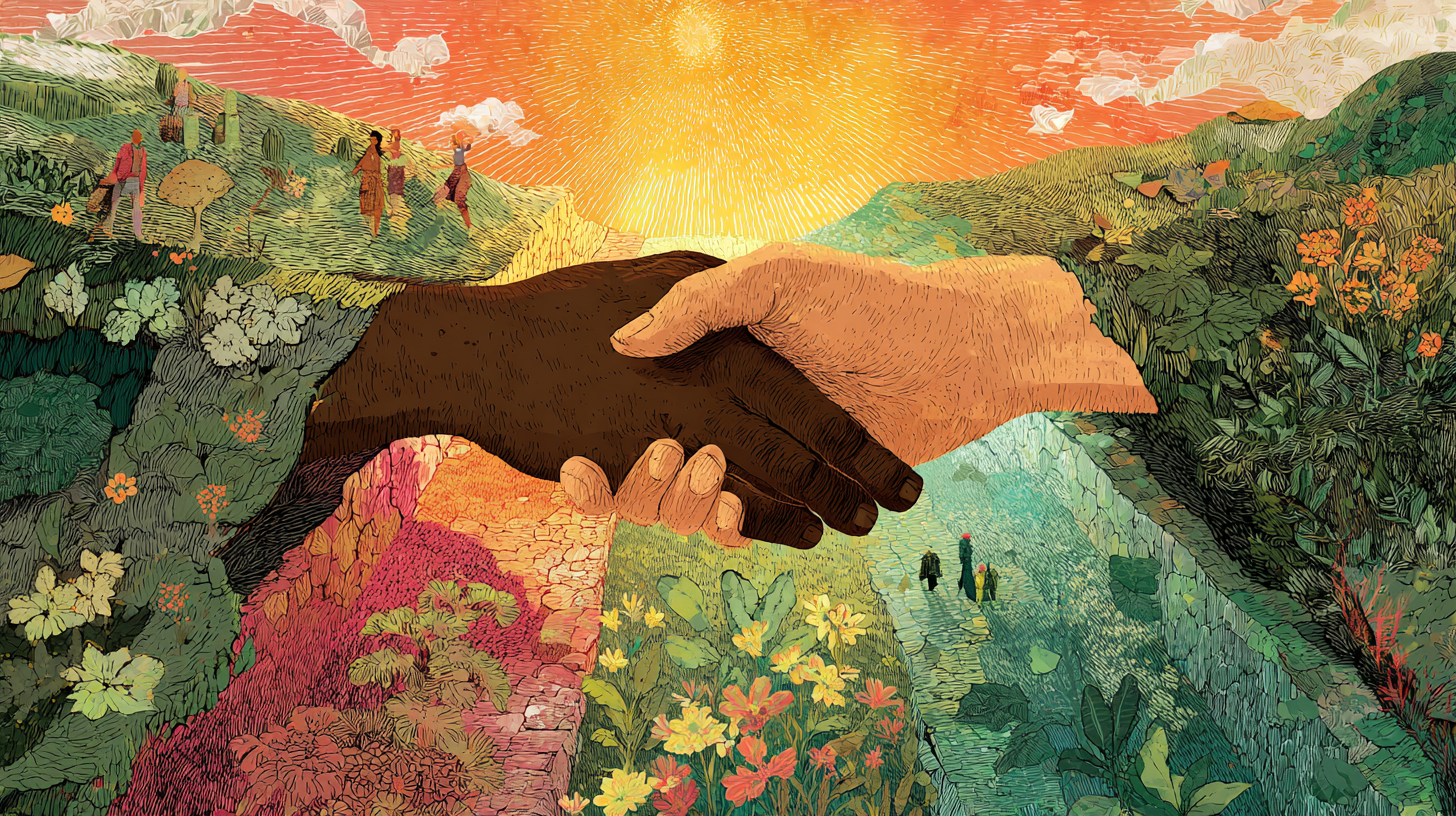
I'm sure none of this is new or surprising to you. The marches, the rhetoric, the online vitriol - we've all been living inside it. Recognising what's happening now is important. But over the past few weeks, I've found myself asking a harder question: how do we imagine a less angry future?
Because if history shows us that anger rises in cycles, psychology also shows us that cycles can be interrupted. Fear doesn't have to calcify into hatred. In fact, the same psychological levers that push people toward exclusion can be turned, gently, toward empathy and solidarity.
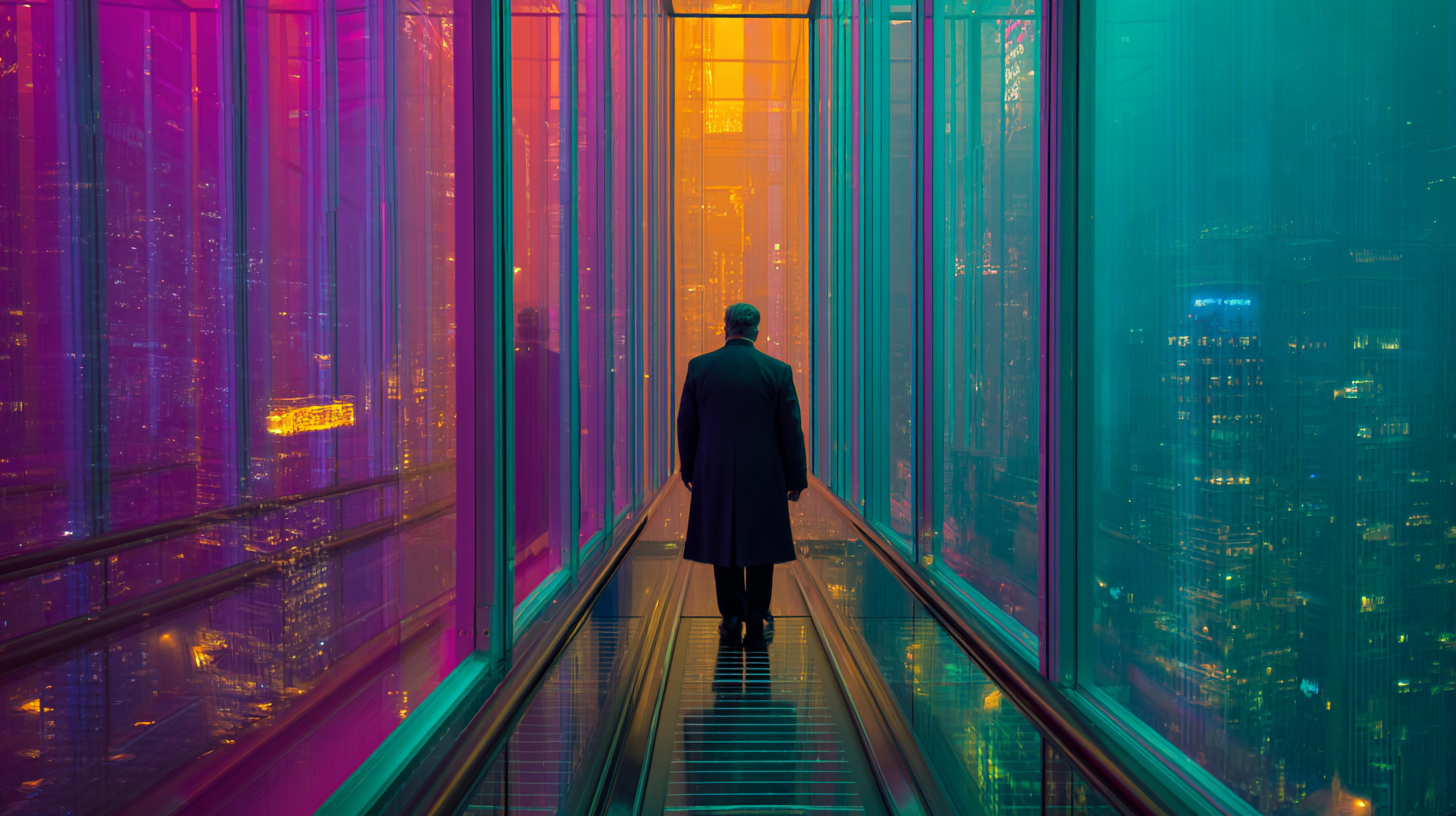
Here’s five ways I found that make a measurable difference.
Contact as antidote
One of the most consistent findings in social psychology is that contact between groups reduces prejudice - especially when people meet as equals and work toward shared goals. Even imagined contact, like picturing a positive encounter with someone from an outgroup, has been shown to soften attitudes.
Narratives that reframe
Stories matter. When migrants are framed as neighbours, co-workers, contributors, not as threats, fear loses its grip. Political messaging that taps into values of loyalty and duty - not just fairness - can bridge divides rather than deepen them.
Economic security as psychology at scale
Scarcity sharpens hostility; safety loosens it. Policies that reduce inequality and precarity are not just economic fixes but psychological interventions. A strong social floor lowers the temperature of politics.
Teaching comfort with complexity
Education that cultivates critical thinking and tolerance for ambiguity helps blunt the appeal of black-and-white answers. We need citizens who can hold uncertainty without collapsing into anger.
Leadership that models calm
In every era, leaders set the emotional tone. When authority figures choose inclusion over scapegoating, transparency over fear, it ripples outward. The opposite is also true, as we know too well.

None of this is easy, and none of it is instant. But I hold on to the idea that moods shift - just as they always have. The same societies that turn inward in fear can, given time and the right conditions, turn outward in hope. The question is whether we can build those conditions deliberately, rather than waiting for the rhythm of history to change on its own.
Can We Interrupt the Fear Cycle and Reimagine a More Hopeful Future?
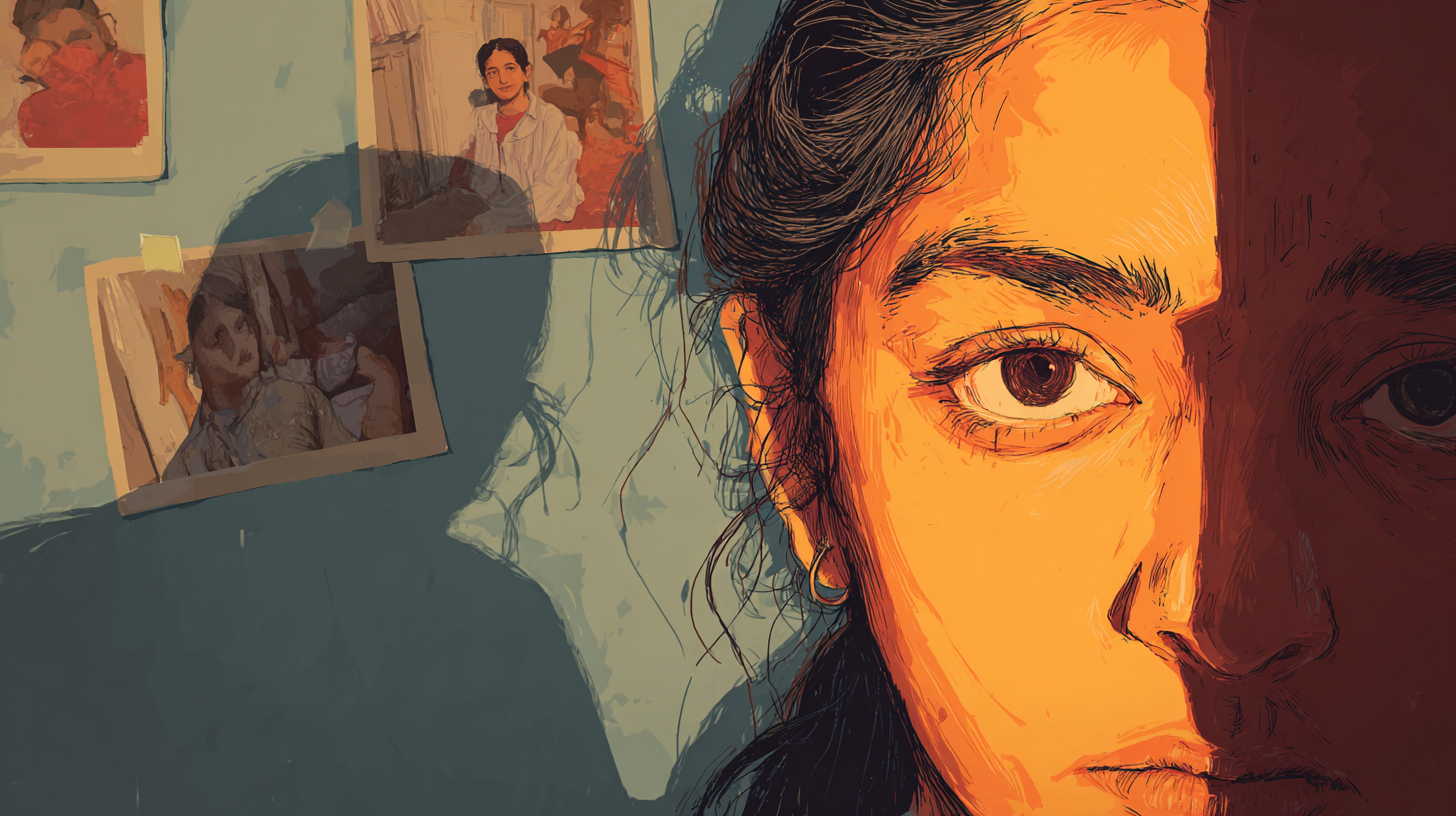
When I think back to those marches, the hotels attacked, the crosses painted on roundabouts, I still feel the unease in my stomach. It's not just the anger on display - it's the sense that something larger is shifting, that the ground beneath us is moving.
History tells me this isn't new. Crises create fear, fear seeks clarity, and the politics of exclusion offers it in sharp relief. Psychology explains why those messages land, why friends I love are pulled toward harder lines, why entire societies tilt right when life feels unstable.
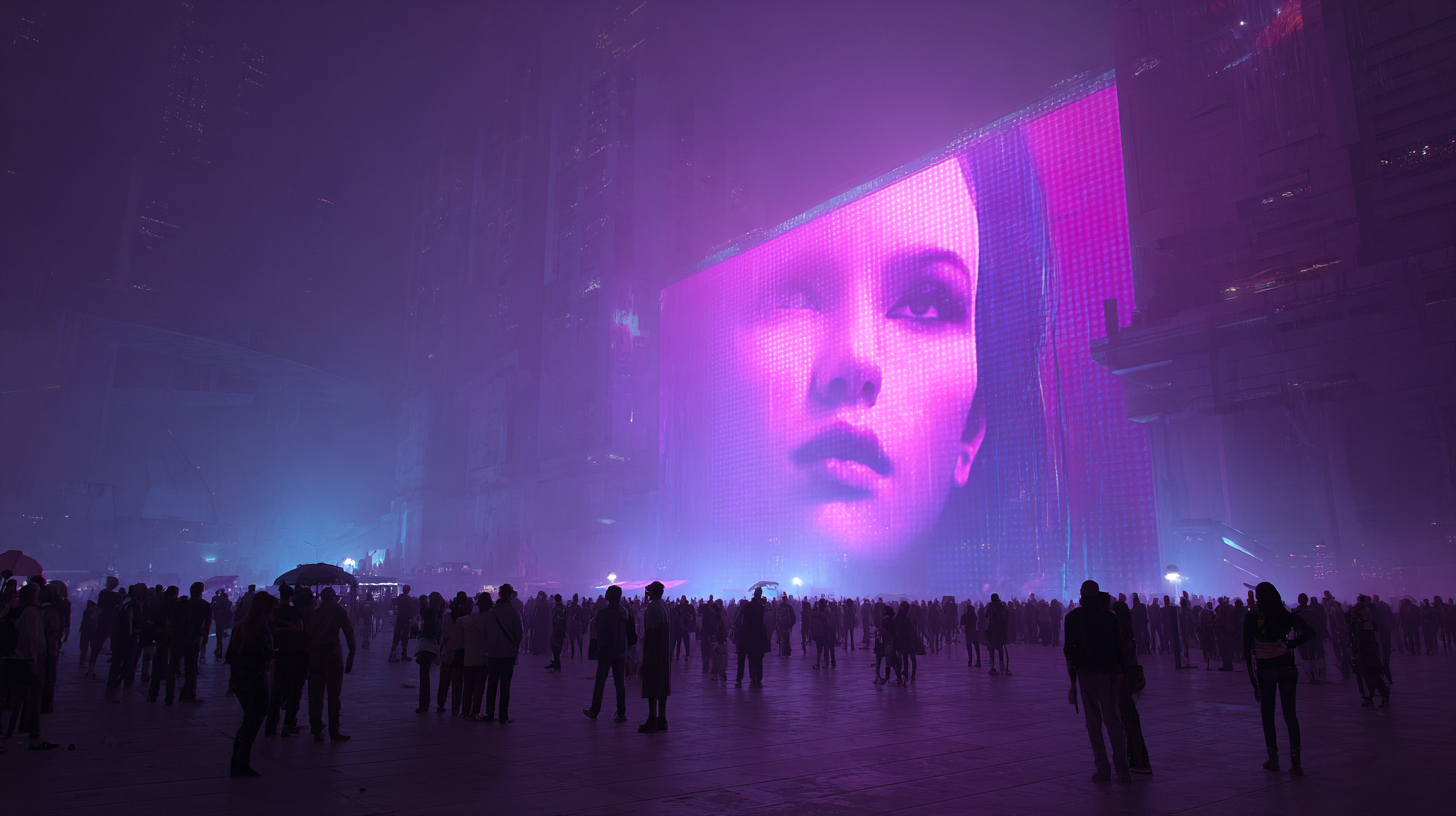
But history also tells me moods change. The same nations that once embraced anger have, in other times, chosen solidarity. The same human instincts that cling to scapegoats can, under different conditions, be drawn toward empathy and care. Nothing about this cycle is inevitable.
Which leaves us with a choice. To see this moment as proof that we are trapped in endless recurrence. Or to see it as evidence that rhythms can be recognised, interrupted, and rewritten.
That's why I wanted to write this piece: not to judge, not to stand apart, but to try and understand. And in understanding, to hold open the possibility that we might, together, imagine a less angry future.














